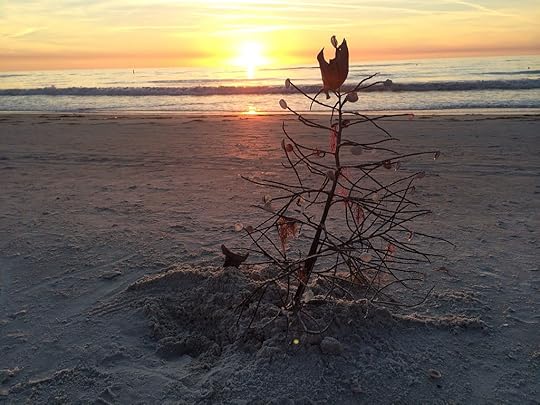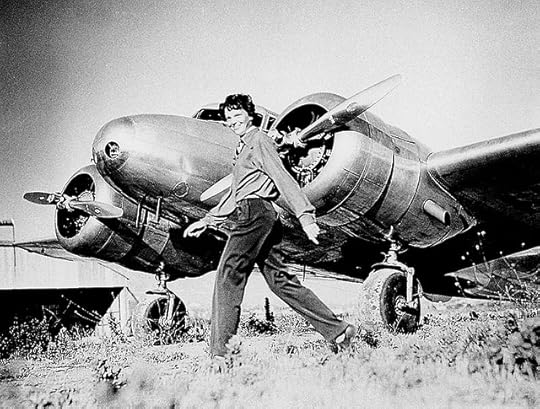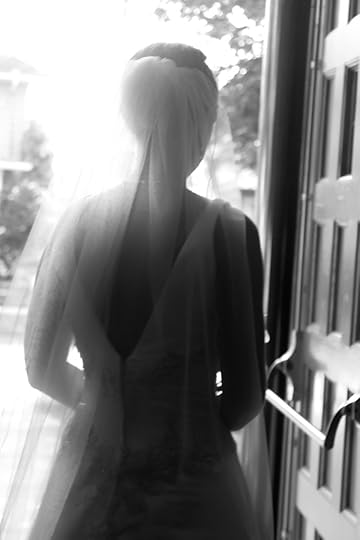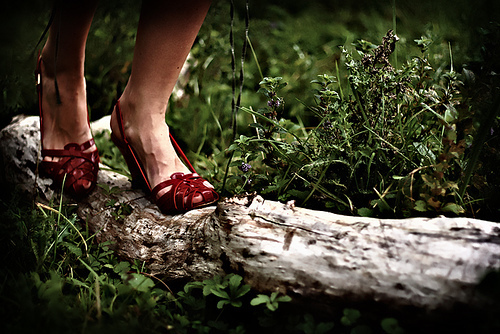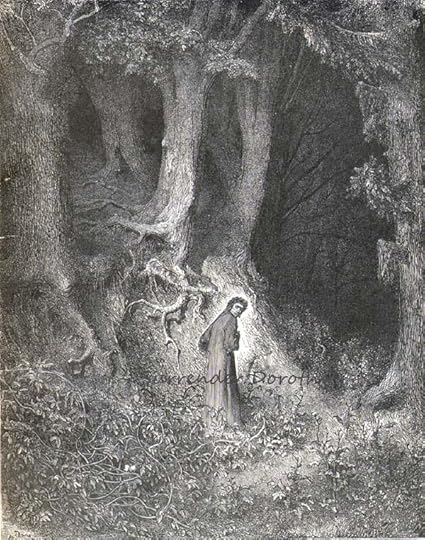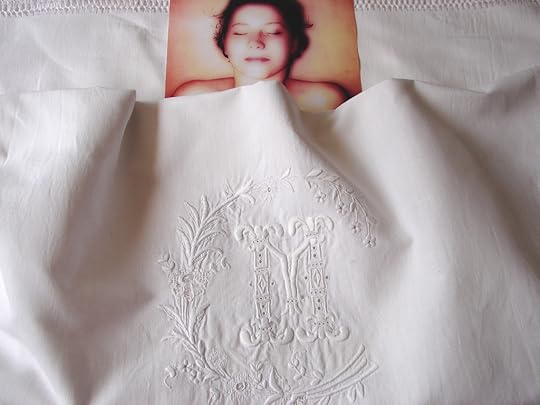Meg Sefton's Blog, page 81
December 30, 2013
A tale of love’s mystery on New Year’s Eve
Katya ran her finger over the round warm ceramic of the coffee mug. She had to admit to herself, it was a comfort to have this portion of her life, this portion with her roommate, finished. Though just as soon, she was horrified. Her friend had died an awful death, sick from cancer, alone, estranged from wealthy parents, divorced, with one selfish daughter who hardly visited. Katya believed herself to be a terrible person for thinking about her own relief.
In a silly moment, Nina had asked her to pour a cup of coffee on her grave at least once a week, maybe more, for as long as she was missed, then her roommate was to be free of the routine. They drank bottomless coffee at a diner during mornings they worked in shops on Park Avenue. Nina also asked Katya to burn a letter that she had written out and placed in her jewelry box. This was more serious and yet also involved performing an act over her grave. She made Katya swear she would not look at the letter before she was buried.
Katya pulled it from her pocket. It was in an envelop, sealed. It read:
Dear Katya,
You have been my sole confessor in these last few years and on you has fallen a great burden and for that, I’m sorry. Had I allowed myself to entrust my worries and cares to anyone else to relieve you, I would have. Maybe it was the illness that stirred up fear but in my growing physical weakness, I could not always trust others to be as tender with my heart. People are a bit like animals in this sense. But you, dear Katya, I have told you, have been more than humane.
I am scared of dying, because of the bitterness inside, bitterness I fear will keep my spirit wandering. I am scared of my sins. I am scared of the reality of the woman I’ve been, the woman I fear my daughter sees and the woman God has punished with disease. Therefore I have left this one task up to you, to burn a list of the things I have held onto in bitterness and also the sins I have committed. Please leave no corner of these papers intact, but burn them wholly over my grave and let the cinder mix with the soul and be my penance. I’m not Orthodox, as you know, I have no priest. Please, dear Katya.
Forever yours,
Nina
It rained the morning Katya intended to burn the papers. She was so surprised by the fervor of the note and the length of the list. She sat out beside her grave longer than she had anticipated and her coffee grew cold and she fed the grave what was left. After work that night she sliced vegetables and brought water up to a boil in their lonely apartment. She ate and watched TV and went to bed but felt in the moments before sleep a presence watching from the corner of my room. Was it Nina?
She was able to burn the papers the next day and prayed to heaven that Katya’s soul would be released from the burden of the guilt she felt, from her bitterness. And yet she noticed as she burned the paper, the soil was dry as if from drought, even though it had rained through the night. She bought a watering can and from that time on, watered Nina’s grave every day. To no avail. It drank in every drop of water fed to it and produced nothing. It lay barren as the day she was buried. No grass grew. No flowers that were planted there would thrive. Had she missed some opportunity to make things right for Nina that first morning she sat beside her grave, procrastinating until it rained and it was too wet to burn her letter?
Several years later she met Nina’s daughter. The young woman came to the apartment to find out how things had been for her mother during her illness. Katya revealed the mystery of the gravesite. She was careful with her description of the letter.
“I’m sure my mother was upset I never called or came to visit,” said the young woman.
Katya remained silent.
“I will try to water her grave.”
The grave did not respond to the daughter’s ministrations.
Again, Katya felt the intensity of a presence in the corner of her room that evening.
She decided to write to Nina’s parents and friends and asked them to visit. They knelt beside the grave, tending to the soil, but the plot of land rejected their efforts.
Perhaps there was something perfunctory about how they went about things, Katya considered. Perhaps this was the difficulty. She did not know how to change this since likely there were so few who truly loved tending a grave. And sadly, few truly seemed to love Nina. The cause of this seemed to have nothing to do with Nina herself. It was just her fate. Any grave tending would be perfunctory. Even Katya had not been the friend Nina needed.
One night a man knocked on the door. It was New Year’s Eve. Katya was not going out and had not expected anyone. She did not feel in the festive spirit.
The man, she noticed, had skin as white and translucent as parchment. His hair was a soft yellow. “I have come to pay my respects to Nina.” When Katya told him the plot number, he watched her with his clear blue eyes, a blue she had rarely seen.
She went back to Nina’s grave before heading to the shop a couple of days later. A profusion of lilies grew there from soil as rich as loam.
The only thing Katya could figure in the weeks following, as flowers continued to bloom there, in the space where an unregenerate woman lay, is that someone loved her, someone whom Nina had not remembered, in all of those months of her illness, or someone was alive whose love, until then, had remained undeclared.


December 26, 2013
“Cocoa Beach Christmas” by Meg Sefton
Daddy drove us nine hundred miles to Florida the Christmas after Mama passed. It was just me, Daddy, and my little sister Lulu. Daddy said there wasn’t anything in Florida that wasn’t all around the world and that was Christmas love and reindeers and Santa. He didn’t want to see snow, he said, or get a tree or eat turkey. These things reminded him of Mama and he needed a break from feeling sad. He said she would have wanted us to go to Florida for Christmas. In fact, he said, she was probably knew what we were up to right now and it made her happy.
When I wasn’t keeping my sister occupied with books and games of eye spy, I was watching the landscape change from naked trees and gray skies to thick grass and fat palms and I was watching for Mama to see if she was watching us drive to Florida. Maybe she was traveling beside us, just outside the window. I looked for her in the shadows of green. I looked for her in the marshes beside the freeway. She would wear her white linen gown, the one with the satin bow I had learned to tie when I was three years old. She would wear her hair long, like she did before the sickness took it. She loved the outdoors. It made sense I saw her a few times, walking along in the trees, touching the head of a tall white bird in the marsh, a place she would sink if she were a real person and not a ghost.
The camp was a place called Cocoa Beach. I had wondered if that meant the water would be made of chocolate. I had visions of me and Mama and my sister rolling in waves and waves of cocoa. Dad would be sitting on the shore, reading his paper as usual. We would bring him cups of cocoa and he would pretend to drink it just like he did at our tea parties. He would finally join us and mama would flee away, not wanting to cause him pain because she was a ghost and it seemed like ghosts knew everything.
We camped in a spot surrounded by twisted trees and bushes with red berries. It looked like God put his finger down and stirred things up, but it was really the wind and soil that made them the way they were said Daddy. While he set up the tent, he let us go to the beach and put our toes in the water which was not cocoa. The sand was crushed shells and scratched my feet but it didn’t hurt. When a wave crashed, bits of shell rubbed up against my legs. My shoulders felt warm from the sun. I put my diving mask on and dunked my head under the water, looking for Mama. Not far away I saw the tail end of a white gown flowing in the water but then a wave took me down and by the time I stood up, I could see no one. I went under again and all I could see was the strange grey green sea.
Lulu was scared of the water and so I had to hold her like Mama used to, on my hip. She could swim but I knew it was the moving water that worried her and she clung tight. When the waves started slapping her bottom, she kicked and screamed. I took her back to the shore and held her hand while we walked back to the campsite. My stomach was all in knots because I thought she might cry to Daddy about the waves and spoil things but she just sat on the picnic bench and sucked her thumb. I brought a towel and wrapped it around her.
That night by the camp fire, Daddy read about the baby Jesus. All I could think about was whether Mary would get cancer and leave Jesus. Then I remembered Mary weeping for Jesus on the cross. I didn’t feel so sorry for him that he was poor and there wasn’t room for him in the inn. And I didn’t care about Easter and Jesus dying. This was Christmas. I kicked some sand into the fire.
“Katherine Elizabeth,” daddy said like he does when I’m in trouble.
He sent me to the camp restrooms to get ready for bed. There was a lady in the stall beside me who had blue veins running through her feet like Mama did right before she died.
“Where is your campsite?” I asked her when I came out of my stall but she just kept washing her hands over and over. I couldn’t see her face. Her hair hung down like Mama’s used to hang when she let it free. “Are you Mama?”
She looked up at me then. She had dark eyes and a face with deep lines around her mouth. She only wiped her hands on a roll of cloth that went round and round through a machine.
Daddy was silent in the tent. He didn’t sing to us like Mama would have. I knew I shouldn’t say anything about the lady and about whether Mama was in Florida. He promised Santa would find us no matter where we were but of course I knew Santa was a made up story. But how come so many grown ups believed you would never die? Was Mama an angel now?
When Daddy and Lulu were asleep, I slipped outside the tent. The moonlight made our campsite white. Little puffs of air blew against my face and the shadows moved with the trees.
I spoke with Santa then. I asked him for my old Mama back – the one who could still lift Lulu on her hip, who could sing us to sleep without stopping to catch her breath, who made us fried chicken and biscuits. I asked Santa if my Mama was here. I asked him these things even though he was supposed to be an old made up story for children.
There was only the sound of the crashing chocolate waves. How Mama would have loved that, that I imagined them as cocoa. She would have played along, filling up a pot and putting it on the fire, doing magic and making real chocolate. She would have kissed me for my dream of the dark, sweet, milk sea. There was a sea somewhere like that and Mama was waiting for us, with Peter the wolfhound who died soon after she died, heartsick my dad told us. He was licking up the ocean. She had gone there to prepare a place for us. We would never be apart again and Daddy would watch over us always.
I stuck a dried up flower from a palm tree in the sand. Daddy said people didn’t really notice the flower of the palm but he said the most interesting things come and go in secret. I put some rocks around the base to hold it up and then at the top I tied the ribbon Mama had given me. It was white and satin like the ribbon in her gown. The dried up palm flower looked like a Christmas tree. I would leave it out all night, just in case.
Please visit Florida Flash: A Christmas Anthology where this and other excellent holiday tales may be found.


December 9, 2013
My Christmas Project: Call for Submissions – Florida Flash: A Christmas Anthology (Deadline December 18)
Welcome to the first Florida Flash: A Christmas Anthology! You are here because I invited you to be to inspired by sand, balmy air, and salt water to write a very short story or experimental piece that conveys Florida as we know it, and, in particular, Florida at Christmas time. There is no requirement, however, that you be from Florida or that you have even put your toes into her shark-infested waters. As always, the only thing that is required is your imaginative “A” game, your story telling prowess, your ability to tell a story succinctly.
Some research will enrich and enliven every piece, even those written by the natives. Please make everyone believe your piece could not have taken place anywhere else. This is why some research may help. Refer to the Facebook page, sited below, for more cues. You will be sure to receive extra virtual chocolates and nogs for your diligence.
So, here is the story of the invention of the beach tree pictured here. It was told me by the photographer who was vacationing on a Florida shore: “[The 'tree'] was one of those pieces that fall off a palm after it ‘flowers;’ this is all that’s left. I watched the women pick it up, break off the end, bury it in the sand like this, and then find and place the shells on it.”
Perhaps you would like to write about this tree and about characters who may have created it. Perhaps you would like to write about something else that is holiday-related.
The challenge is as follows: Write a 500-1000 word story that takes place on a Florida beach. Your story must be about Christmas or another religious holiday tradition and it must be so full of hard core seasonal relevance that it practically leaps onto the pages of the blog on its own and doesn’t require the editor to write some angsty rejection note. The editor wants to be intrigued. The editor wants to drink champagne while reading your complete, perfect, wildly entertaining, thought-provoking holiday stories and toasting her tootsies before the proverbial fire.
The tone can be light or dark or a nice mixture. The holidays contain everything in the imaginings of the deft writer. It is a season of intensity, and the best time, in this editor’s opinion, to produce a seasonal anthology. Keep in mind that young adult readers will be a part of the audience so a curb on gratuitous sex or violence will put you on Santa’s good list.
Submissions can also be “realistic” or “fantastical.” After all, this is the season we tell kids to believe in quite a few things. But, for example, let’s take the shark. The reality of the shark and the mythology shaped by culture and lore reminds us that, even though, as adults, we no longer believe the things we once did when we were children, we still believe things which shape our beliefs and inform our behavior. This definitely holds true for people who live in Florida and for those who visit, who consider swimming in her oceans. I love this quote by Borges: “Reality is not always probable, or likely.”
Now that the guidelines have exceeded the word count for the submissions, the editor will shoo you away to the workshop. Just so you know, pieces will be published on a rolling basis so the sooner you can spin your well-crafted tale, the sooner your work will be considered for publication. Reprints will be considered. In this case, please explain where your piece has appeared before.
Submit to Florida Flash: A Christmas Anthology
Like us on Facebook!


October 26, 2013
No Man’s Land
The land of convenience. The land of whim. The land of favorites and self-serving. Leave them for dead. Retire the keyboard, put down the pen. Pretend you’ll never die. Pretend you’ll never live. Pretend you’ll never love. Pretend you never did. Not even for a moment. Never cry. Never mourn. Never commit. Never hurt. Never leave but never engage. Do not be moved. Get angry if someone tries to move you, that is, from your mark. Marry safe. Marry your yes men. Make exclusive friends from the lifelong fan club: Your dependents. Listen to the silence. Enjoy the absence of any sound but your own thoughts. Take comfort in your echoes. When alone imagine dreams of you repeated in everyone you meet. There is no one else left in the land. This is peace, you think. Wow, yes, thank God, you say out loud, to no one, real peace.


October 25, 2013
After Amelia
A year after the disappearance, George Putnam, a.k.a. “Mr. Earhart,” stands by the dining room sideboard in his North Hollywood home. He lifts the silver chest but his hands are too large for the tiny handles. He sets it down. He rubs the circulation back into his fingers. It’s past dawn on the east coast. Any moment they will call. Any moment they will ask questions he cannot answer. He opens the chest and grabs a fistful of forks. He marches into the kitchen. Under the sink is the polish. He unscrews the lid, takes out the little white sponge, dabs it in the purple paste, begins.
He has to rub the silver polish off of his hands to take the first call. It’s Vanity Fair. Can they send a few people out for some pictures? An interview? He talks to them. He puts the phone down. He returns to his task.
The forks are always the trickiest. He works the end of the small white sponge through the tines. He feels his fingers bear down on the filigreed sections. He feels himself bear down. She was so plain. Would it kill you to wear skirts more, he had said to her. Would it really hurt you? He was thinking of how he would like to see her when she was alone with him. He knew she could dress when she had to, but this was what he was saying. He was saying something about their private life. He was saying something about his needs as a man.
He imagines America’s anger at this. It would be the women, mainly. Their eager faces had watched: Amelia boarding the plane for her first transatlantic flight; Amelia waving to the crowd in the ticker tape parade; Amelia leaving luncheons and concert halls. Some had been housewives and some, girls with dreams of loops and spins and dives, of hugging the curvature of the earth through a thin sheet of aluminum.
The phone rings. Representatives of his private search in the Pacific requesting the balance of the payments due them. “Fucking great timing!” he yells into the phone after they have hung up. The dial tone shouts back its uncomprehending nonsound. He slams the receiver back into the cradle. He will have to declare her dead to pay the bill.
He feels himself slump across the sink. His shirt is wet with perspiration. His head is light. He holds a damp cloth to his forehead.
He stands. He shakes himself until his limbs feel loose. He grabs another handful of silver from the chest and returns to the kitchen. Knives. A knife is straight. It can cut clean through, even though the more decorative knives required pressure and a light sawing. He examines the blade. The blades almost always seem to stay in good repair. They were of a different material. There had been times, to be sure, many of them, when she had stolen his breath, when she had become all woman and something else. She had said her eyes would be always watching him. Just look up, she had said. What other woman could say that?
The New York Times. “Yes, all theories are still possible,” he tells them. What are they expecting him to say? “Yes, I suppose she could have run away with Noonan.” This is the one they want the most, this one or one that she is simply still alive, living in America under an assumed name. Only the pessimists and warmongers prefer the one about the Japanese capture and assassination. This is what happens in a bottomed-out economy. This is what they think about. This is what they dream.
The dark ink of the sky is lightening. He puts the knives and forks he has polished into warm soapy water. A good soak is what they need.
He will drive to the beach. He puts on a bathing suit, his favorite guayabera, his straw Havana, his canvas shoes, a dark pair of glasses. He slips into his car. He turns the radio dial to a weather report. Sunny with patches of clouds. No showers. On that day, far out to sea, it had been the same. She had told him there were places where the sky and sea seemed to merge. Perhaps she was right. Perhaps they come together in those spaces where planes disappear. Perhaps they close up to disguise that private moment when passionate women, drunk with the sun, melt their wings.
First appeared in Emprise Review


October 13, 2013
Bride Song, by: Christina Rossetti (1830-1894)
 OO late for love, too late for joy,
OO late for love, too late for joy, Too late, too late!
You loitered on the road too long,
You trifled at the gate:
The enchanted dove upon her branch
Died without a mate;
The enchanted princess in her tower
Slept, died, behind the grate;
Her heart was starving all this while
You made it wait.
Ten years ago, five years ago,
One year ago,
Even then you had arrived in time,
Though somewhat slow;
Then you had known her living face
Which now you cannot know:
The frozen fountain would have leaped,
The buds gone on to blow,
The warm south wind would have awaked
To melt the snow.
Is she fair now as she lies?
Once she was fair;
Meet queen for any kingly king,
With gold-dust on her hair,
Now these are poppies in her locks,
White poppies she must wear;
Must wear a veil to shroud her face
And the want graven there:
Or is the hunger fed at length,
Cast off the care?
We never saw her with a smile
Or with a frown;
Her bed seemed never soft to her,
Though tossed of down;
She little heeded what she wore,
Kirtle, or wreath, or gown;
We think her white brows often ached
Beneath her crown,
Till silvery hairs showed in her locks
That used to be so brown.
We never heard her speak in haste;
Her tones were sweet,
And modulated just so much
As it was meet:
Her heart sat silent through the noise
And concourse of the street.
There was no hurry in her hands,
No hurry in her feet;
There was no bliss drew nigh to her,
That she might run to greet.
You should have wept her yesterday,
Wasting upon her bed:
But wherefore should you weep today
That she is dead?
Lo we who love weep not today,
But crown her royal head.
Let be these poppies that we strew,
Your roses are too red:
Let be these poppies, not for you
Cut down and spread.


October 6, 2013
walker’s instruction to the ascent: a guide
Shuffle through the silent wood to worship, past loblollies and scrub oak hung with flowering vines, your sick feet the nerve endings numb, the site of a glittering lake beckoning beyond the Bishop’s Walk and the Church of the Incarnation where someone sits at a piano, someone mixes water with wine, someone is blinded by the sun streaming through a window as they think about what they would like for dinner.
Step high over roots, concern yourself not with the sand slipping between your toes, breaking down your best sandals. It is for naught that you think any more which brand you purchased, how much the cost, and what you should buy next time. Think rather of roots. Enjoy the sand and how it falls out of your shoe in a playful way because you cannot walk because of your feet and it is if you are doing this on purpose, like when you were young and flopped your legs on front of you, flinging sand on your brother, on your sister, and you had more time then, all the time in the world.
It doesn’t matter you are late. You have nothing to contribute. There will always be voices in worship somewhere. There will always be worship. Not even the forest needs you though it will take you. There will always be bodies who, once animate, raised their hands in worship, return to earth and you, no longer a child, see how it begins as you fall off out of time beginning with the feet that can no longer run, the flesh that is no longer thought of or desired by those in time, and you, having once participated in a chorus, live on an edge without recognizable features or breath, where eternity has caught up with you and you and you had thought of yourself not ready and yet you are, venturing on your own. Those you thought should join you cannot follow through the divide, they cannot pass. You have tried to carry them but their fears have overwhelmed you and you must think, instead, of the little white dog who waits for you on the edge of town, the new ferns that must be watered, the meals you will make with the ingredients you just bought at the market, the son who will be home from his father’s next week. Ironically you must be more attentive to the things of time rather than to those things which wait beyond.
In the twilight worship hour, you must go alone through the loblollies and scrub oak hung with vine, the sparkling lake in the distance, until you reach the lip of it all, where the worshippers’ voices coalesce and become strongest, like a ring of sound around the world. And yet, you only see the glittering eye of the abyss in the distance and it is not in the depths of the earth but suspended and it is not dark but filled with light and fills the skies from the waters it takes from earth and one day you will be taken up from the earth and one day you will return again as rain.


September 13, 2013
may my father rest
When they came to capture Father, they did so with ropes and sticks and fed him bear containing a tranquilizing substance. We watched as he devoured the flesh, its blood resting in the fur I use to kiss. He had been starving and in mourning for my mother, who had been captured, tagged, and taken away to higher regions. My brother and sister and I did not make it obvious to him we could see his defeat. We ate our grains and cream in silence in cupboard spaces and we did not crowd him or come near.
The men hoisted him onto a stretcher, their pipes set in their teeth, their pipes hovering over the indignity of our father’s limp frame, as if he were powerless, as if he were lazy and never chased deer and wild game, as if he had not laughed at our games in sunshined fields and watched for danger along the shadowed edges.
I touched his paw as his body moved passed and it seemed as dead and yet it had steadied me while I took my first steps. It lifted my brother and sister and brother and I onto my father’s back, the nape of which smelled of burnt wood and leaves.
My brother and sister are calling out for my father, my brother and sister are crying. It is the new people who do not understand, I say, though I know my brother and sister, being young, do not know my meaning. I have no words of comfort for them while the presence of the men lingers heavily in the air. Drink your milk I say and they drink the heavy milk at the bottom of the bowl, the last of the milk my father stole from the farmer further down in the valley.
I am not ready to speak for my mother and father both. I am not ready to guide.
I take them out to play where they can run among the stones of the people who have died. They should not have to watch as their father’s body jars as if lifeless on the open-bed truck while men’s ash falls on his fur.
I tell them these are the stones commemorating all who have returned, though I know they will not believe this in the literal sense I wished it to be understood. And yet it comforts them, children of tombstones and loss, that in some sense, this is true, and that even men with stiff lipped bearded faces have no say in what cannot be contained, or shot, or beaten.
And when the sun is high we take a picnic on the stones and when it rests over the mountain range we lie among the memorials to people who were and wait for the chorus of animals that contains the voice of our mother penetrating the mists of the dreaming dead.
August 28, 2013
Midway upon the journey of our life
Inferno, Canto 1: Dante in the savage wood
Midway upon the journey of our life
I found myself within a forest dark,
For the straight-forward pathway had been lost.
Ah me! how hard a thing it is to say
What was this forest savage, rough, and stern,
Which in the very thought renews the fear.


August 27, 2013
welcome
Welcome to my new blog, “In a Forest Dark.” Please read my “about” page. I look forward to meeting you here frequently! Please grab a cup of hot chocolate, a cappuccino, or chocolate that is at least 70% cocoa.


Meg Sefton's Blog
- Meg Sefton's profile
- 17 followers




